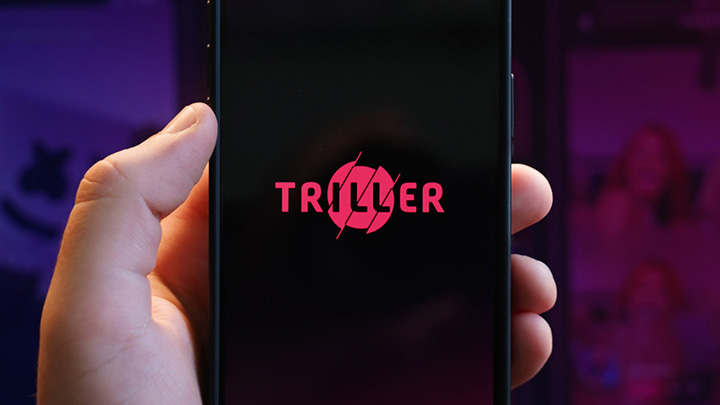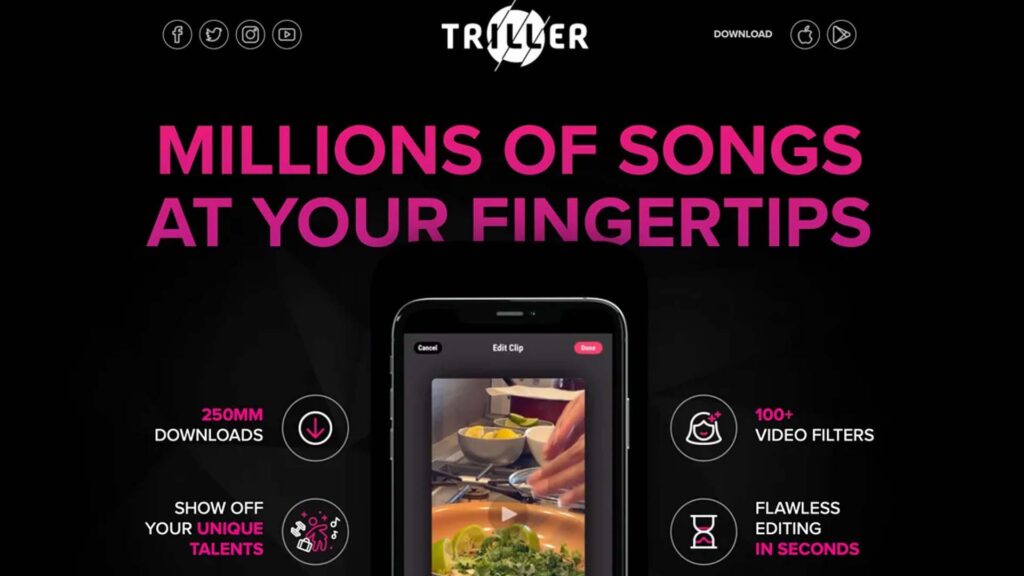Tell us a little bit about your background and the work you do at Triller
My name is Karin Swanson and I’m the president at Julius, which is a business within Triller that connects brands with creators via a robust collaborative tech backed by human insights. Our business is global but I am based in San Francisco, California. Born and raised.
Which inspiring woman would you invite to your dream dinner party and why?
There are two immediate women who come to mind. First is Michelle Obama. I feel like she’s just had a lot of cards stacked against her and people who have sought out, basically thinking or wanting to believe, that she was going to fail or was a failure before they even gave her a chance. And through that all, she’s been able to create such positive change and impact in many different areas and she does all of that without seemingly much ego. I think that’s super admirable and would love to have my dinner party. So Michelle, if you’re hearing this and you’re free, let’s connect.
And the second inspiring woman I would have at my dream dinner party … is the current Prime Minister of Estonia, Kaja Kallas. The reason I would invite her is … I’m not sure of her politics outside of what’s happened with the war in Ukraine, but she has been an absolutely fierce defender for Ukraine and representing such a small nation by population as well as land size as Estonia. She has stood up to Russia and I think a lot of other nations overlook Estonia. But the stakes are still very real and very high for them, sharing that border with Russia, and she has just led very powerfully and really represented her people and their interest and their safety. And I would love to have both her and Michelle at dinner and discuss all types of things as to the woman leaders or trailblazers that I have admired in my career.
What women leaders or trailblazers have you admired in your career, and what did it mean to you to have them pave the way and provide that leadership example?
It’s ironic because I’ve been in tech for almost a decade now and I’ve only had one female mentor and boss that entire time. Her name is Bryn Caruso. She just really helped me understand that things that I might want to learn or grow at or develop or ask about to be a woman in tech and just have a seat at that table. She always had my back but also showed me that sometimes it’s okay to make your own path. The path that other leaders at my various roles have had is not necessarily the one that I needed to take. And so, I think it was really impactful to have a female leader who said and showed really leading by example that you can, you can make your own way, you can choose how you want to get to where you want to go. It doesn’t have to follow an existing system or roadmap, especially in tech. I think that’s comforting to remember, especially as a woman, but just in general that a lot of businesses get to where they want to go via different means and sometimes it’s OK to break that mold.
What piece of advice would you give to women in tech?
I would say this: Stay informed. The best way to create opportunities for yourself, in my opinion, in any male-dominated industry, is to stay informed, be willing to learn, and absorb as much data and knowledge as possible. You’ll be challenged by your approach and your ideas more than men. So the more data you have to validate your findings, the harder it is for people to put you to the side. So again, lasting piece of advice for women in tech, stay informed in order to empower the next generation of women leaders.
What should leaders do to empower the next generation of women leaders?
When I think about what leaders should do to empower the next generation of women leaders, I speak first to male leaders who represent the majority of executives and to them, I say two things.
First, it’s tired but it’s a very important expression: Give women a seat at the table. You need to give women an opportunity to have an impact. It’s really as simple as that. And secondly, when you give them that seat, check your biases at the door. If you think a woman is not qualified in some aspect, consider that that’s because she’s never had an opportunity to gain that qualification, whether it’s a role or a skill set, or something else. Just because a woman has a different approach to something or executes in a way that’s unfamiliar to you, it doesn’t mean it’s the wrong way to go about business. Women will bring a different perspective to leadership and you should welcome that diversity of thought just as you would with any of your other male executives.
And to the currently too few women leaders out there, I would say, in order for us to empower the next generation of women leaders, we have to speak up when we have a seat at that table, especially for other BIPOC women who are even less represented at an executive level. I don’t know the numbers as of 2023, but in 2021, 86% of Fortune 500 CEOs were white men. So to women leaders who currently have that opportunity to lead and enact change, make sure that you’re also elevating the other qualified women in the room, giving them opportunities.
Why is it important that more women are represented in Tech leadership roles?
For the same reason, it’s important that minorities are represented in traditionally white or male-dominated spaces, representation matters for tech. That means that while there has been some progress, there’s still very much a Silicon Valley bro culture. Women sometimes, because of that, need to have that reminder that what they’re trying to accomplish professionally is important or valid. And seeing other women who have broken through is one way to connect and to feel that validation or that confidence that we often have in ourselves. But because of the system, that can get lost in terms of trying to enact change or implement ideas or processes in a professional way.
This year’s theme for International Women’s Day is “Embrace Equity” – what does this mean to you?
What this means to me is that, let’s retire the performative actions as it relates to equity. Embracing something means to actively take it in, to absorb it.
To me, that means actions need to be made to make equity part of our culture and part of our DNA, whether that’s professionally or socially or culturally. As my wife’s father says, experience, it don’t advertise it. I do think you can advertise it. There’s a time and a place for that, but only if you’ve already taken the actions to enact more equitable measures, right?
So it can’t be, here’s what we’re gonna do, here are these flashy talking points. It’s gotta be, here’s what we’ve done. We’ve already taken these changes. Again, there’s not always a need to share them, advertise them, but I think that embracing equity really means going all in doing the dirty work to get things more equitable across the board.



